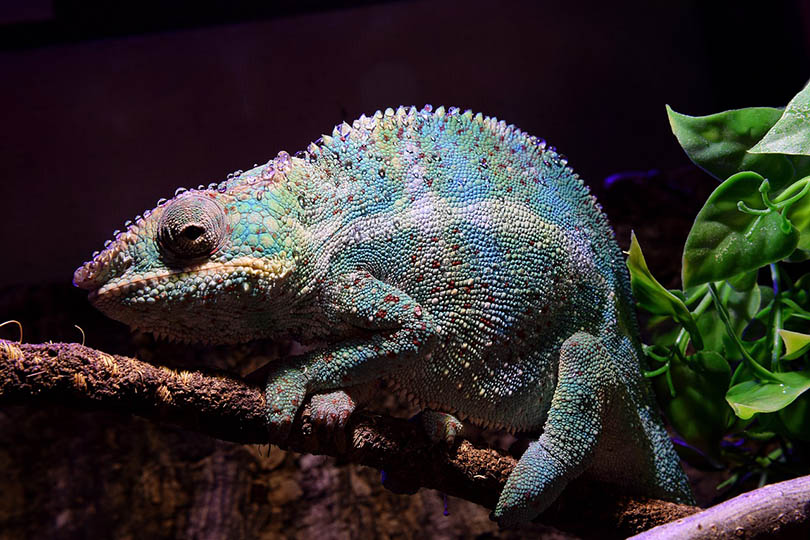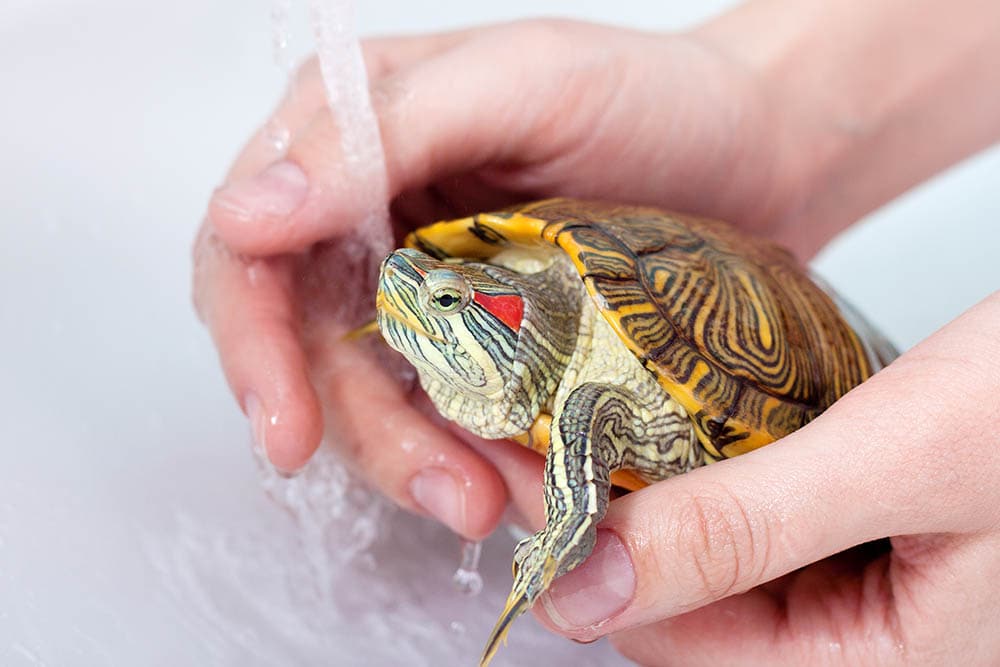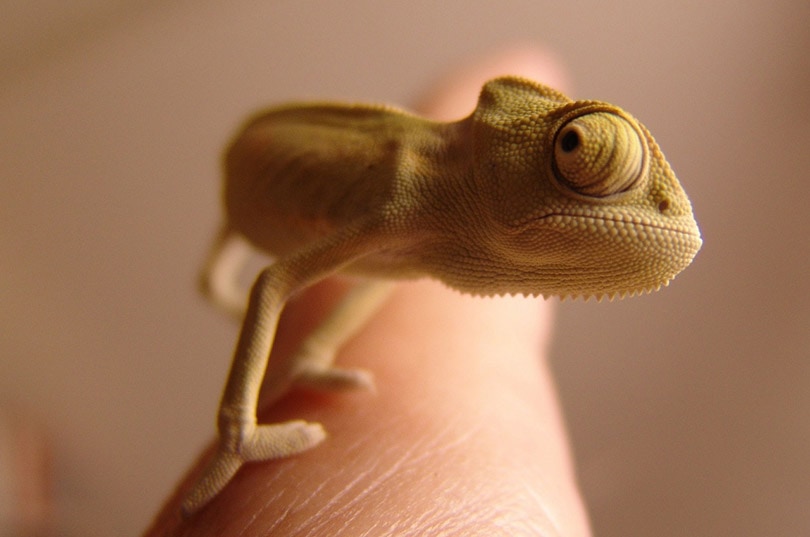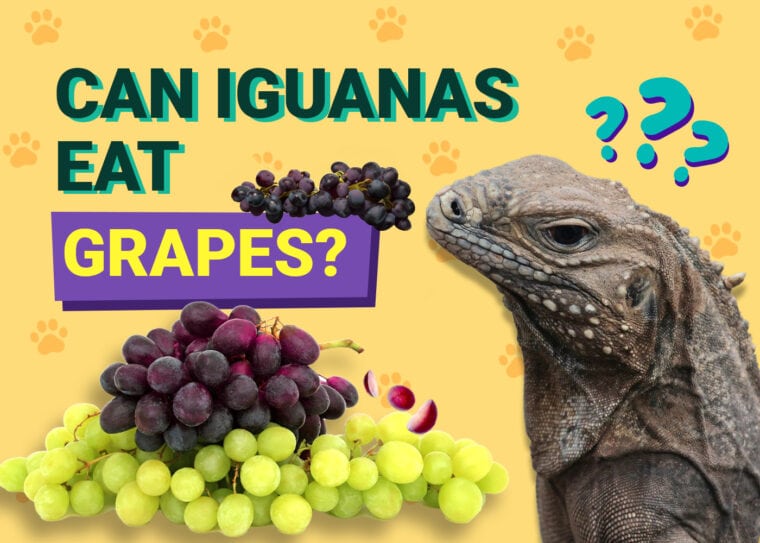
While iguanas should be eating mostly leaves, they can consume a small amount of fruit in their diet. Grapes can be a part of this fruit portion. However, they should only be fed in moderation.
Grapes are not toxic to iguanas, but they simply don’t provide iguanas with everything that they need to thrive. They can fit into an iguana’s diet, but only in a fairly small amount.
To know exactly where grapes fit into your iguana’s diet, it helps to have background knowledge of iguana nutrition.
Iguana Nutrition
Iguanas are strict herbivores. Specifically, they get most of their nutrition from leaves. However, flowers and fruits naturally get mixed in with these leaves.
Breaking down leaves can be fairly difficult. For this reason, iguanas have a specific microbiome that helps them ferment the food so it can be absorbed into their bodies.
In many cases, iguanas in captivity eat only plant materials. As long as they are provided with an appropriately varied diet, this nutritional plan can often work out just fine. However, a small amount of commercial iguana food is sometimes recommended. While such food is specifically made for iguanas, it shouldn’t make up more than 10% of the iguana’s diet. For the most part, it’s best as a supplement, not the main part of their diet.
While fruits are nutritious, they simply don’t provide your iguanas with the nutrients that they need to thrive. They shouldn’t take up a big portion of their diet for this reason.

What About Fruits?
Iguanas can benefit from a small amount of fruit. Dark, leafy greens should make up about 80% to 90% of an iguana’s diet. The rest can be fruits of some sort, including grapes. You can also offer yellow, red, and orange vegetables. However, if these are offered, you will need to offer fewer fruits overall. Never offer light-green veggies, like iceberg lettuce or celery. These foods don’t include many nutrients and should therefore be avoided.
Generally, you should ensure that fruits are not making up more than 20% of an iguana’s diet. In many cases, iguanas may benefit from eating even less fruit. Typically, leafy green veggies are better options.
Iguanas do love fruits. They are flavorful and tasty, especially compared to their usual diet of leafy greens. However, grapes are extremely water-rich and low in nutrition compared to veggies like spinach.
If you feed your iguana too many grapes, they will be full of water, which will prevent them from getting all the nutrition that they need. Generally, it is better to ere on the side of fewer fruits than more fruits.
Iguanas don’t need grapes, though they typically find them tasty.
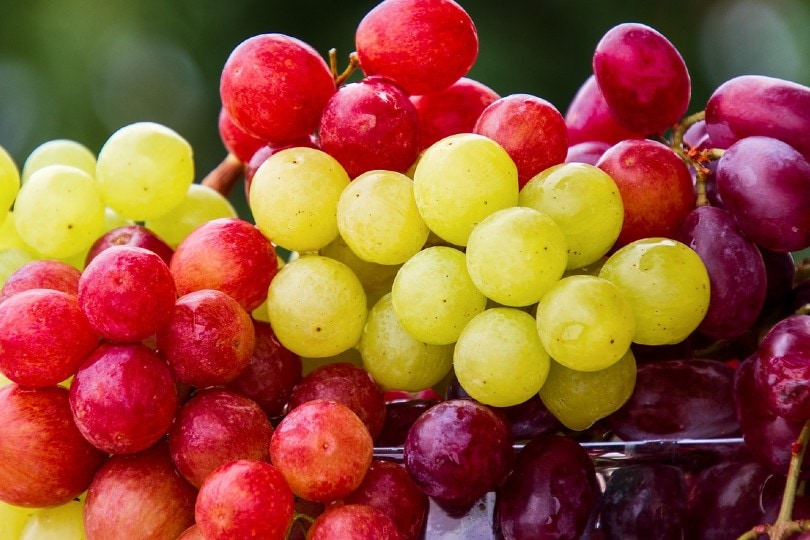
What Happens If You Feed Iguanas Too Many Grapes?
It may be tempting to feed grapes to your iguana because many find them extremely tasty.
Grapes themselves aren’t harmful to iguanas. Instead, it is the danger that they will push out other, more nutrient-dense foods.
Your iguana cannot meet their nutritional needs by eating grapes alone. They need a diet made up of mostly leafy green veggies, or they won’t get all the nutrition that they need to.
Therefore, feeding your iguana too many grapes likely won’t lead to huge problems right away. But your iguana may develop nutritional deficiencies over time, especially if they are fed a diet high in other fruits too.
One of the most vital minerals that iguanas need is calcium. This mineral is essential for bone health and growth. If growing iguanas don’t get enough calcium, their bones may be unable to grow correctly. In many cases, calcium deficiency at a young age can cause irreversible defects.
Iguanas that are already fully grown also need calcium to remain healthy. Without it, their bones can become weak and prone to damage. Eventually, their bones will be so brittle that they will break underneath their own bodyweight.
Grapes are not high in calcium but leafy greens are. Therefore, iguanas that consume too much fruit and not enough leafy greens will typically develop a calcium deficiency.
There are other possible deficiencies too. Vitamin D is essential for iguanas, and it is unknown whether they can get enough from their diet alone. However, every little bit counts, as vitamin D is necessary for bone health.
Grapes are not high in vitamin D. Therefore, iguanas that eat too many grapes may not get enough vitamin D in their diet.

Can Iguanas Eat Grapes With Seeds?
The tiny seeds of grapes are perfectly fine for iguanas to consume. They are far too small for the iguana to choke on and are not toxic. Your iguana can eat as many of the seeds as they want, and they would be perfectly fine (in the short term, at least).
However, the seeds should only be given in moderation, just like the grapes. Otherwise, more nutritious foods may be pushed out of your iguana’s diet, which can lead to all sorts of problems.
That said, you do need to chop up grapes before feeding them to your iguana. The roundness of the grapes themselves make them significant choking hazards. You can cut them longways into “spears” to make them safe. You can also cut them smaller if that makes them easier for your iguana to handle.
Some owners have reported that small iguanas have trouble digesting many grapes, whether it is due to the skin or the seeds. For this reason, you should ensure that your small iguana is only fed tiny amounts of grapes.
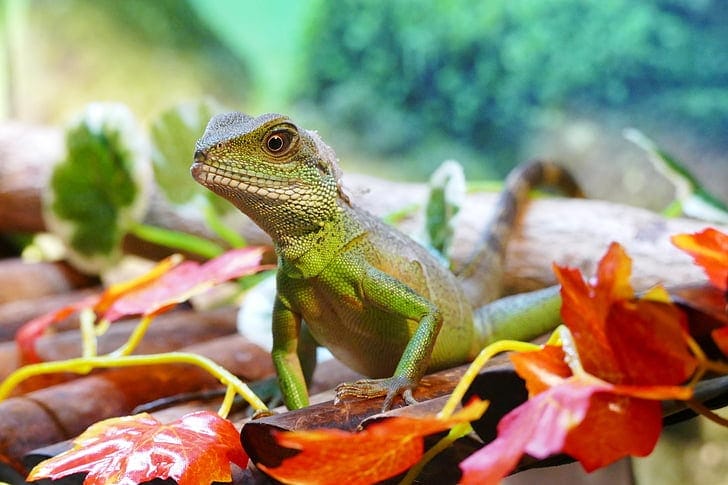
- Related Read: How to Take Care of a Pet Iguana
Final Thoughts
Technically, iguanas do not need fruits. In many cases, this reptile is perfectly fine on a diet of mostly leafy greens. In fact, many benefit from a diet that is over 90% leafy greens. These veggies contain everything that the iguana needs to stay healthy. In many cases, iguanas don’t even need a specially formulated food.
However, iguanas often like fruits, like grapes, so many owners choose to feed fruit to them. If you’re interested in feeding grapes to your iguana, be sure not to feed them more than 20% of their diet in fruits total. Bright veggies that aren’t leafy greens also fall into this category.
In total, grapes should only make up a fairly small percentage of your iguana’s diet. A few grape pieces to go along with your iguana’s salad are fine, but that’s about it! You should ensure that you cut and prepare the grapes properly. They can be serious choking hazards, especially considering how small an iguana is compared to most grapes.
- Next on your reading list: Can Iguanas Eat Oranges? What You Need to Know!


